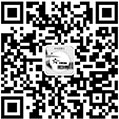|
Catch Phrase | 账单式小康(zhàngdānshì xiǎokāng)Meaning: “账单” means “bill,” “式” means “style,” and “小康” means “affluence.” Chinese netizens made up this word to describe people whose consumption exceeds their income and they realize this fact only when they read their account details. The phrase is similar to “the invisible poor,” another catch phrase for mocking people who usually live a high-quality life and spend a lot of money on food, clothing, the gym, spas and other daily expenses, which leaves them little or no money in their bank accounts. Their “affluence” is defined by how much they spent, not their account balance. Example: A: 你收到你的支付宝消费账单了吗? Nǐ shōudào nǐde zhīfùbǎo xiāofèi zhàngdān le ma? Did you receive your Alipay annual expense summary? B: 我看了吓了一跳。我从来不记账,总觉得自己没存款,没想到我早已实现了账单式小康。 Wǒ kànle xiàle yītiào。Wǒ cónglái bu jìzhàng, zǒng juéde zìjǐ méi cúnkuǎn, méi xiǎngdào wǒ zǎoyǐ shíxiànle zhàngdānshì xiǎokāng。 I was shocked. Usually I don’t keep track of my spending. I knew that I wasn’t saving, but didn’t realize that I was living so affluently until I read the account details. |

